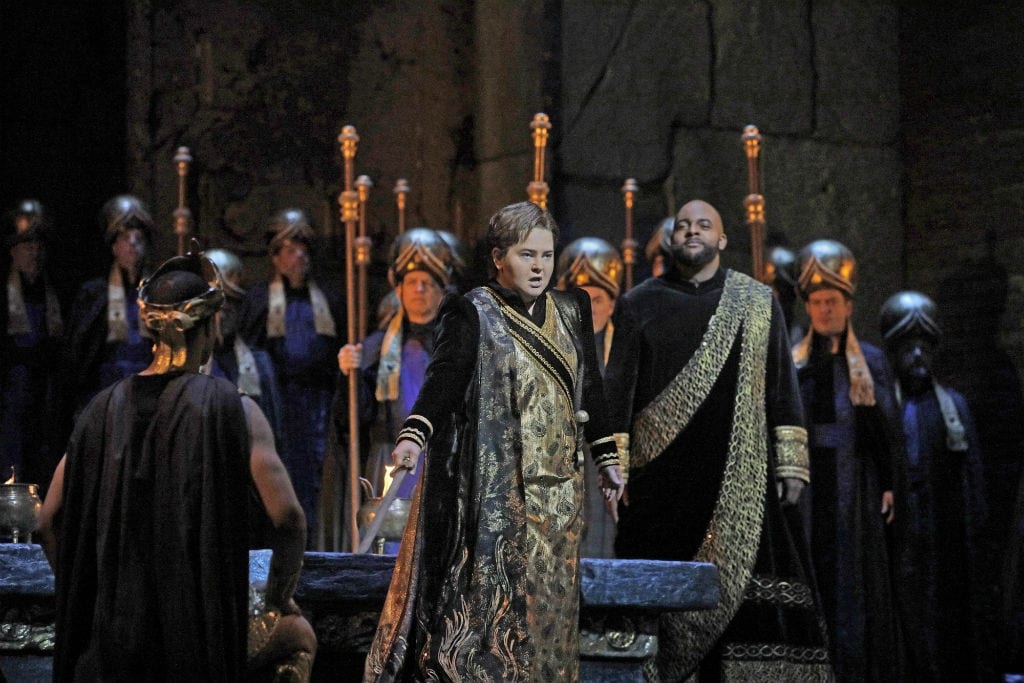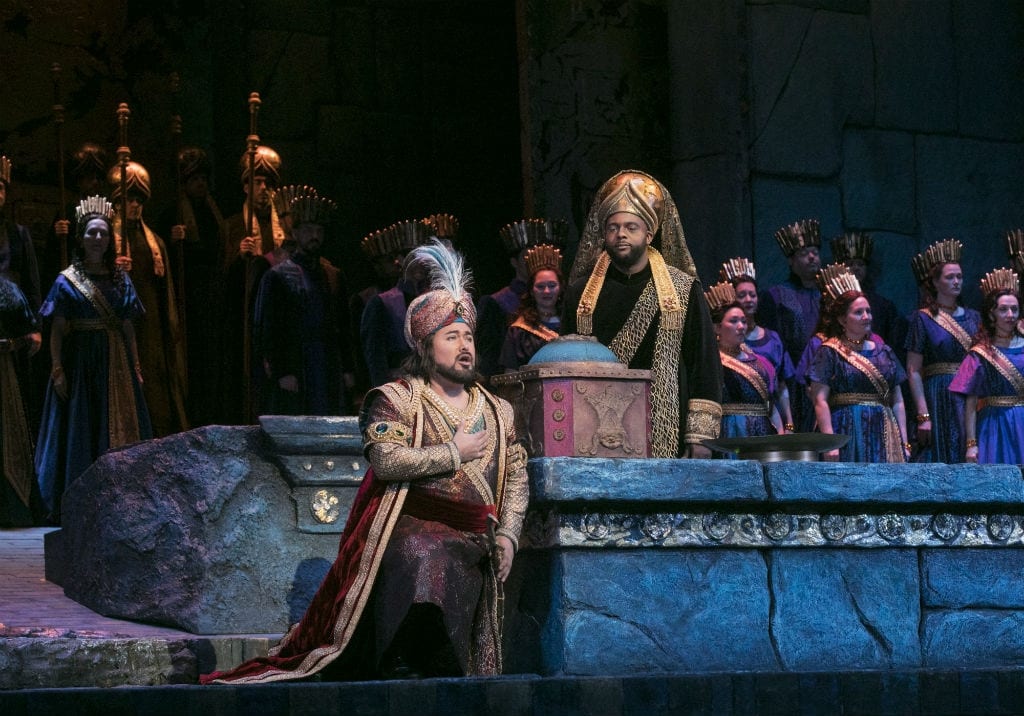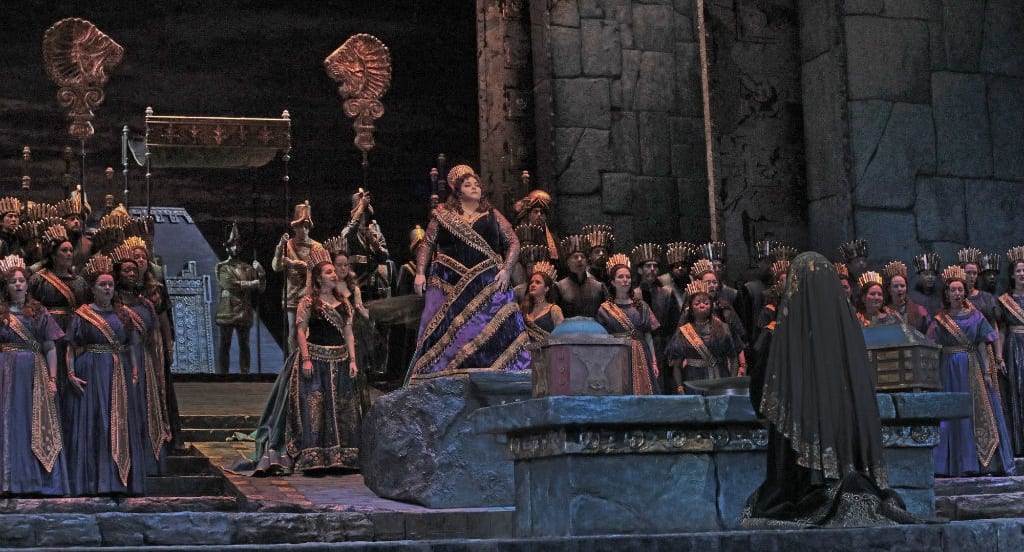Attending the premier of the revival of Giacomo Rossini’s Semiramide at the Metropolitan Opera the week after Black Panther opened and the ski jumping competition was held at the Winter Olympics was a strange experience. I felt like I was plunked in the midst of a supernatural costume drama akin to the movie, while in moments I experienced the same breath-held thrill from pure sound as I had felt watching athletes summersault in midair. The opera had its premier in 1823 and is set in ancient Babylon. The plot is a dense weave of treachery, royal marriage plots, and oracular guidance from departed spirits. Which is to say you don’t go for delicate details of character but for spectacle – and sound.
Rossini is the master of rhythm and pace, so much so that the overtures to his operas are often played by themselves. They are such mad dashes of rapid playing and swooping alternations from soft notes to blasting crescendos of cymbals and drums. Indeed at Semiramide the conductor needs to pause after the overture to accept applause – we’ve been on such a sonic adventure, and the curtain has not even risen.

This production brings back a 1990 version that evokes the Babylon of legend by playing with walls and depth. A mammoth golden textured door serves as a barrier focusing our eyes on the front stage, then opens to lead us further, and further back into the stage. – just as the plot of the opera takes us through oracles and ghosts to an earlier crime. Images of divinities from Assyrian mythology loom in the background as the stage fills with a chorus swathed in sapphire blue: we are in a universe as magical as any Marvel could dream up. All of that pageantry is just the setting for the jewel: Rossini’s music.
From the start the composer brings us rich waves of strong voices, highlighted by some of the most beautiful operatic writing. Queen Semiramide’s Act I duet with Arsace – whom she thinks she loves as a mate though in fact he is her son by his father, a king she murdered – “alle piu care immagini” begins like birds courting and takes off into skipping, leaping, vaulting intertwined, spinning voices and justly appears on compilations of the art-form’s most heart-stopping achievements. If you love gasping at what trained voices can achieve, Angela Meade (Semiramide) and Elizabeth DeShong (Arsace) singing this aria is reason enough to see the show. But that is just one example. Javier Camerana as Idreno – a king from India who is a suitor of Semiramide’s – sang his Act I aria with such lyricism and clarity in the high notes that the audience would not let go of him, and clamored for an encore.

The one hesitation about the Met’s lavish production was that at times it called to mind Hollywood epics of the Cecil B. Demille era. And that is the danger of an opera like this. If at any moment your attention flags, you can lose touch with the show. Instead of being transported you are watching a creation of another era. In choosing this rather traditional staging the Met is placing its bets entirely on singing that is both lyrical and powerful and on visual majesty.
If you enjoy being immersed in acres of blue and gold, and are ready to be uplifted by waves of song that are so forceful they seem to physically wash over you, come see this cast in Semiramide. If you are like me you will rush home to listen to those glorious arias over and over again.

